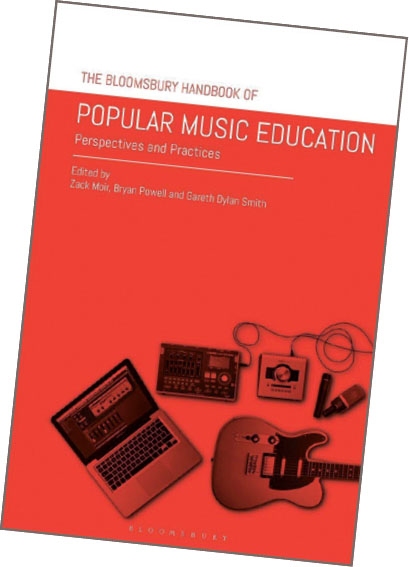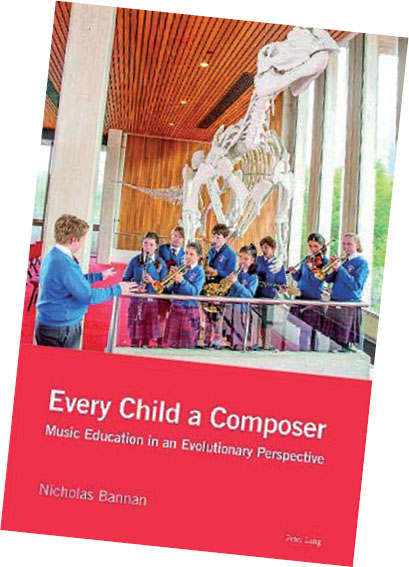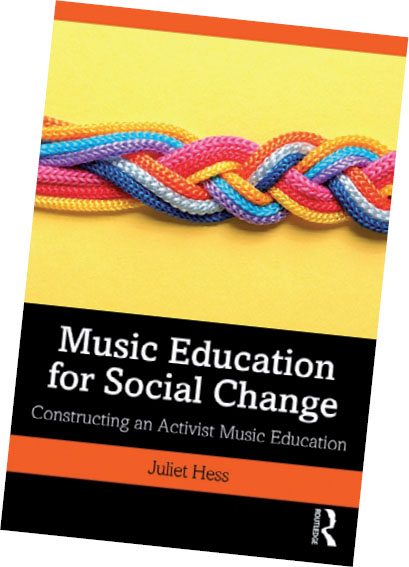
A Century of Change in Music Education: Historical perspectives on contemporary practice in British secondary school music
Originally published in 2000, this book has received a recent re-issue under the Routledge Revivals imprint. Pitts looks back over the entirety of music education in the UK throughout the 20th century, in order to understand the many different changes that occurred and how they shaped each generation's relationship with music. Almost 20 years later, it's interesting to compare its anticipated trajectory with reality.

The Bloomsbury Handbook of Popular Music Education: Perspectives and practices
This is quite the international tome, with chapters written by UK academics sitting beside contributions from educators working in the USA, Canada, New Zealand, Australia and China. The result is a fantastic collection that encompasses a huge range of topics, providing the reader with invaluable insight into the latest thinking and practices on popular music education. Both formal and informal learning environments are covered, making this a must-have book for anyone in music education – the fact that it is broken into sections and discrete chapters means that you can dip in and out as you see fit.

The Oxford Handbooks of Applied Ethnomusicology: Volumes 1–3
In case you're unfamiliar, ethnomusicology is – broadly speaking – the study of music in terms of its cultural and societal context. If this sounds like something that you might be interested in, then these three volumes are as good a place to start as any, covering many topics in a diverse and ever-growing field.
As musicians around the world become more connected, the topics for study continues to grow and this collection tries to give some understanding into where the subject is now. The contributors are balanced by age and gender, which lends an important depth to the text, and between them provide important insight into topics such as decolonising music, advocacy and the role of music in post-conflict communities.
This is quite the collection, so you might want to take it one volume at a time rather than committing to all three, though at this price you would be forgiven for snapping up the whole lot.

Every Child a Composer: Music education in an evolutionary perspective
An interesting book which looks at evolutionary biology and psychology to advance a thesis that music is an integral part of the human experience. Drawing together thinking from scientific developments in acoustics, neuroscience, linguistics, archaeology and anthropology, the author examines the role that music has played in binding together communities and laying the foundations of human culture.
The work also involves looking at how children learn music and this links into the research mentioned above.
By combining these threads, Bannan produces a series of strategies that are designed to impart musicality through vocalisation, gestures, and trusting in our instinctive responses to harmony. It all builds on one another, so that by the end the reader is learning about developing strategies for teaching composition at secondary school.

Music Education for Social Change
This book focusses on music education in North America and is based on interviews with 20 activist-musicians who are using music education as a tool in the pursuit of social justice and an end to oppression.
While the subjects are all working in the USA or Canada, a lot of the ideas that are being explored and the issues that are being addressed have a lot of relevancy in the UK as well. Music has a lot of cultural power and this book engages the reader by asking how they might use music education to bring people together and unite to fight prejudice. It follows on from a rich tradition of music-based activism and offers insight into the lessons we can learn from the past, how music education could look in the future, and how to find the courage to begin to try to implement systemic shifts.








